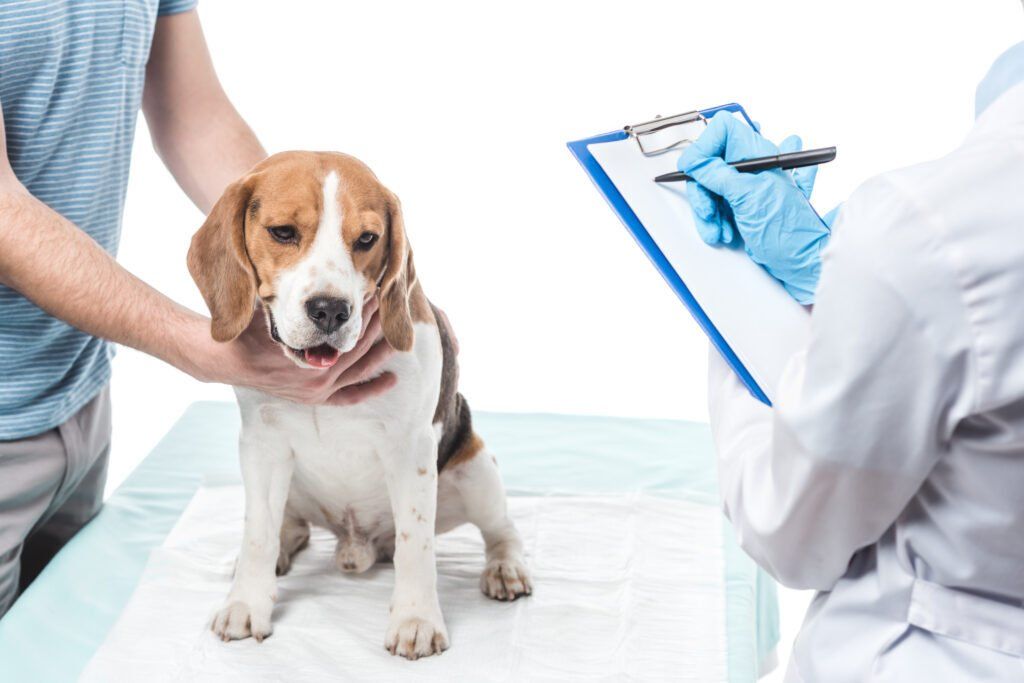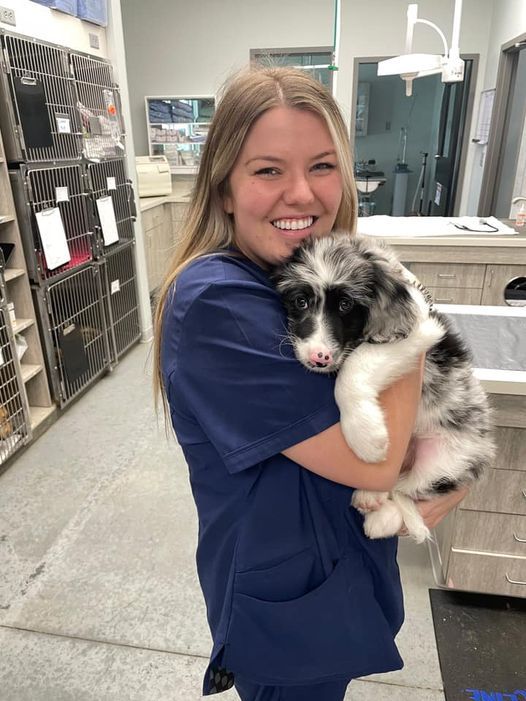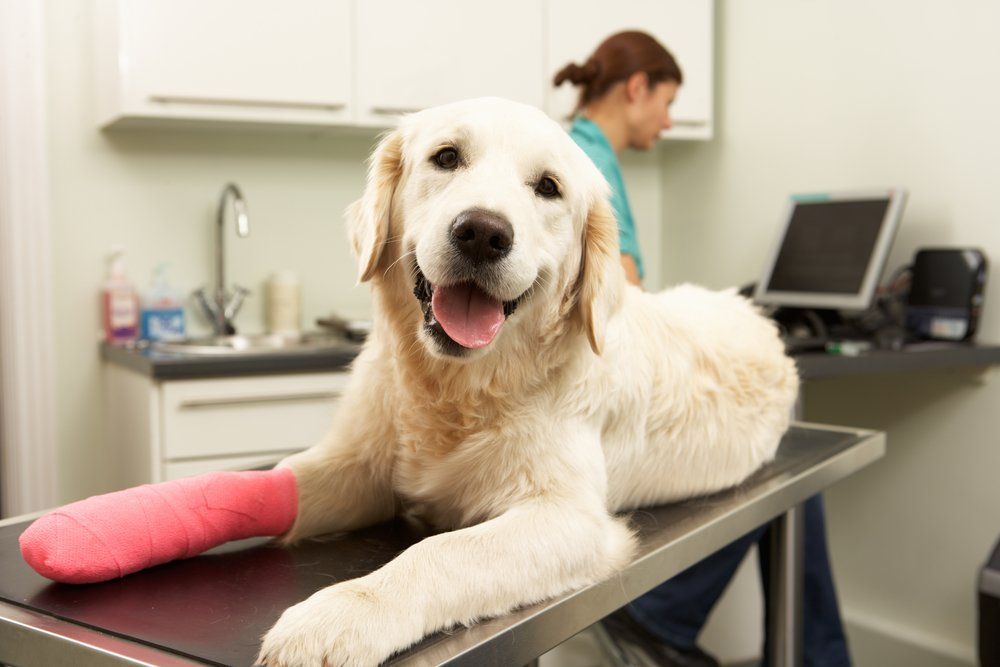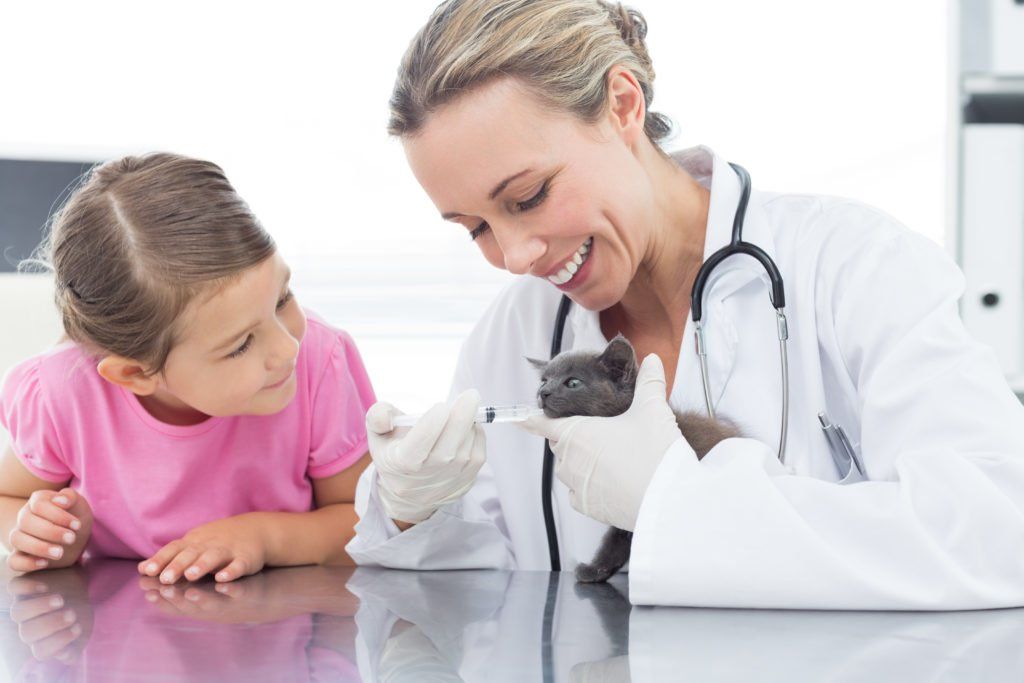Buying Meds From Your Vet vs. Online Pharmacies
In today’s world of endless internet shopping options, it may cross your mind to pick up your pet’s next round of flea, tick, and heartworm preventative, heart medicine, or pain medicine online. It seems like an easy, inexpensive option, right?
On the surface, it may, but there are many reasons why buying pet medication online is potentially risky. Read on to find out why you should visit your vet instead of purchasing your pets’ medications online.
Reason #1: Online Pet Med Dealers May Be Operating Illegally
While it’s true that there are some legitimate online veterinary pharmacies, there are scores more operating illegally. In fact, illegal online pharmacies (for both humans and their pets) are such a problem that the FDA has issued warnings about buying pet drugs online; they have created an entire online resource dedicated to online medication safety.
Many online pharmacies are either operating without a license in the U.S., are based outside the U.S., or source their medications from outside the U.S.
Reason #2: Online Pet Med Dealers May Deliver Expired or Counterfeit Medicines
When ordering from an online pet medication dealer, you have no way of knowing if the medicine has passed its expiration date, or is even the drug you ordered in the first place. Counterfeit, expired, mislabeled, improperly formulated, and improperly stored or manufactured medications are prevalent in online pharmacies.
Expired or counterfeit medications may not deliver the same effect as a legitimate or fresh medication if it delivers at all. Some of these medications may not even contain the medicine you thought you ordered, and this can be extremely dangerous to your pet.
Reason #3: Online Pet Meds May Be Improperly Stored or Shipped
Even properly licensed pet pharmacies may not ship the drugs in a controlled environment, potentially allowing extreme heat or cold to affect them.
An unlicensed online pharmacy isn’t subject to product inspections, which would otherwise ensure they are properly storing and shipping medications per manufacturer’s guidelines. Storing medicine in an uncontrolled environment may render your pet’s medicine ineffective.
Reason #4: There’s a Reason Your Pet’s Meds Require A Prescription
You may be seeking a quick and cheaper way to buy flea and tick or heartworm preventative, and think it’s silly for such a “simple” thing to require a prescription. After all, you can buy flea-killing shampoo at the pet supply store, so why not the preventatives?
Consider heartworm preventatives. Your veterinarian must first perform a blood test to ensure your pet doesn’t have active heartworms or larvae in their system. If an infected dog is given a preventative, they may experience a shock-like reaction as the microfilaria (baby heartworms) die.
Heartworms can be easily transmitted from one canine to another via mosquito. When a dog is infected with heartworms, they can have millions of “baby heartworms” coursing through their circulatory system.
A veterinarian can determine the best course of action if your pet has heartworms, and the best preventative if they don’t.
Reason #5: Seeing Your Vet May Be The Most Cost-Effective Option
Everyone wants to save money, and that is understandable. It’s easy to fall for claims of drastically cheaper medications without a vet visit or prescription. The bottom line: Taking your pet to the vet for their medication may be less expensive in the long run.
A veterinarian can provide insights into your dog or cat’s needs and answer questions about medications specific to your pet. Administering medications without a prescription can result in masking symptoms of more serious problems or causing unintentional harmful reactions. In turn, you may cause more health problems for your pet that will result in costly treatments.
Additionally, many medications have a rebate or discount program that may bring down the cost of reliable, veterinarian-stocked medications considerably. Sometimes medication from your veterinarian can end up costing about the same as what you would pay online.
SRVC: Your Local Little Rock Veterinarian!
When it comes to your pet’s medication, even preventatives, it is best to see your veterinarian. An online pharmacy — even a reputable one — is no replacement for the individualized care and information your veterinarian can provide. Does your pet need a refill or another package of preventatives?
Contact us at Shackleford Road Veterinary Clinic to schedule an appointment today!











